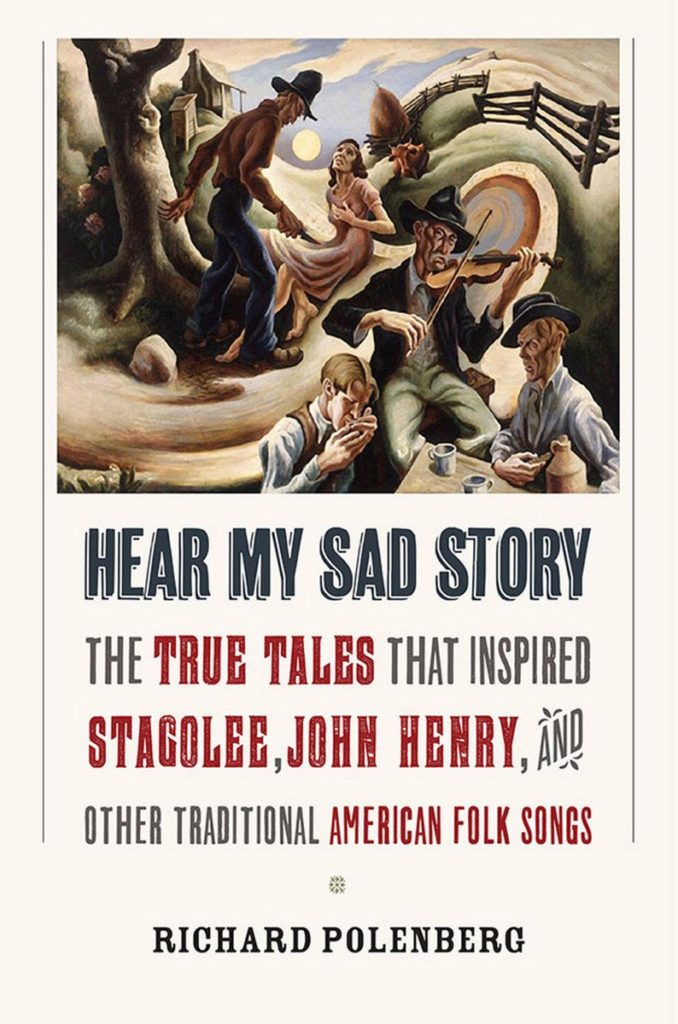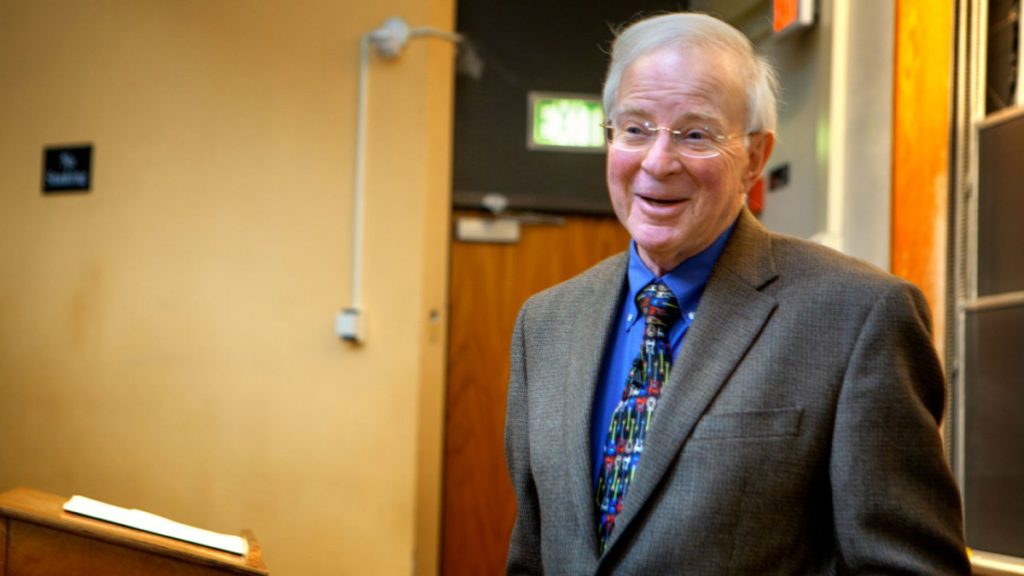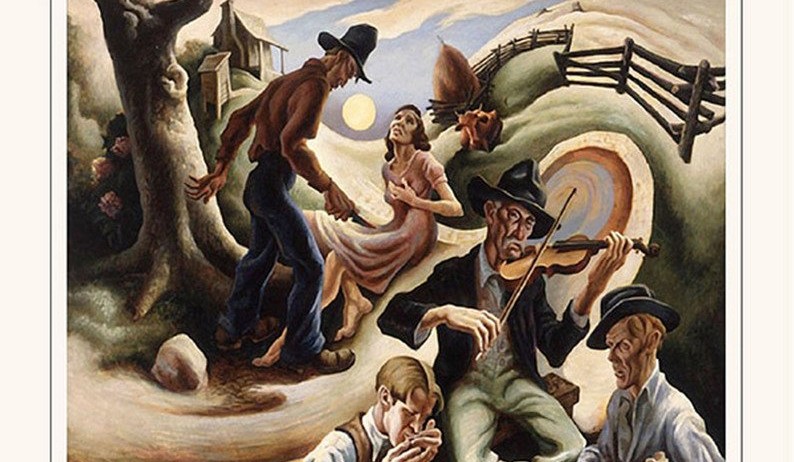Welcome to Radio Bristol Book Club where readers from BCM and the Bristol Public Library come together each month to celebrate and explore books inspired by our region’s rich Appalachian cultural and musical heritage! We invite you to read along and then listen to Radio Bristol on the fourth Thursday of each month at 12:00 noon when we dig deep into the themes and questions raised by the books, learn more about the authors, and celebrate the joys of being a bookworm!
The November book club book is Hear My Sad Story: The True Tales That Inspired “Stagolee,” “John Henry,” and Other Traditional American Folk Songs by historian and author Richard Polenberg. In this book, Polenberg lays out the real historical events that led to the creation of many famous folk songs. The songs in the book are ballads – narrative songs that focus primarily on an individual but also groups, events, or institutions. In this case, they mostly took place in North Carolina, West Virginia, and Missouri though other states appear in the book, including Tennessee, Virginia, Georgia, Kentucky, Alabama, Mississippi, and Louisiana.
Folk songs have many versions, and Polenberg follows that history by examining various versions of the songs in this book. Over time, verses may have been dropped, added, or modified in some way to better suit the musician or audience. However, even though the songs – and sometimes even the melody – have changed, their fundamental message did not. This core message and the circumstances surrounding the song’s creation are where Polenberg has chosen to focus. He dives right to the root of each song and unveils the real events and surrounding social issues that inspired such entrancing music.

As a professor of American history at Cornell University for 45 years, Polenberg taught a generation of students. He was distinguished with several teaching awards throughout his career and was recognized as one of the most popular professors on campus. He also published many books that helped draw attention to often obscure corners of America’s political and legal development. He received awards and praise for several of his books, including Fighting Faiths: The Abrams Case, the Supreme Court, and Free Speech (1987), which won the American Bar Association’s Silver Gavel Award. Several of his other books, such as The Era of Franklin D. Roosevelt, 1933–1945 (2000), War and Society: The United States, 1941–1945 (1972), and One Nation Divisible: Class, Race, and Ethnicity in the United States since 1938 (1980) are often used in college classrooms.
After his retirement, Polenberg spent more time on his passion for blues and folk music, eventually publishing Hear My Sad Story, his final book. Hear My Sad Story combined his interest in music with his extensive knowledge of the American legal system in the 19th and 20th centuries. The songs are all carefully chosen to reflect the social history of the times in which they were originally written.

Cornell University File Photo
Hear My Sad Story is organized by key themes within the music – St. Louis, lying cold on the ground, bold highwaymen and outlaws, railroads, workers, disasters, and martyrs – and is a delightful example of how music can be a window into history. Many of the individuals in these tales find themselves in legal trouble – sometimes they deserved it, sometimes the system failed to work for them because they were poor, women, African American, or immigrants.
Though the lyrics may be romanticized or exaggerated, the true tales behind these classic songs all stem from tragic truths. Truths that often involve murder, love affairs gone wrong, desperate acts born out of poverty or unbearable working conditions, natural disasters, and calamities such as shipwrecks and railroad crashes. These ballads contain the stories of real people who experienced fear, love, loss, and hope. The songs that were born from their stories will help to ensure they are never forgotten.
Please make plans to join us on Thursday, November 18 at 12:00pm for the discussion of Hear My Sad Story: The True Tales That Inspired “Stagolee,” “John Henry,” and Other Traditional American Folk Songs by Richard Polenberg. You can find us on the dial at 100.1 FM, streaming live on Radio Bristol, or via the Radio Bristol app. The book is available at the Bristol Public Library, so be sure to pick up a copy and read it ahead of time. The librarians will be happy to help you find the book. We look forward to exploring this book on-air, and if you have thoughts or questions about the book that you would like to share with our readers, you can email info@birthplaceofcountrymusic.org (Subject line: Radio Bristol Book Club) – your book insights might appear on air with us!
Looking ahead: Our book pick for December is Songteller: My Life in Lyrics by Dolly Parton w/ Robert K. Oermann; we’ll be discussing it on Thursday, December 23. Check out our full list of 2022 Radio Bristol Book Club picks here, where you can also listen to archived shows!
* Erika Barker is the Curatorial Manager at the Birthplace of Country Music Museum.


